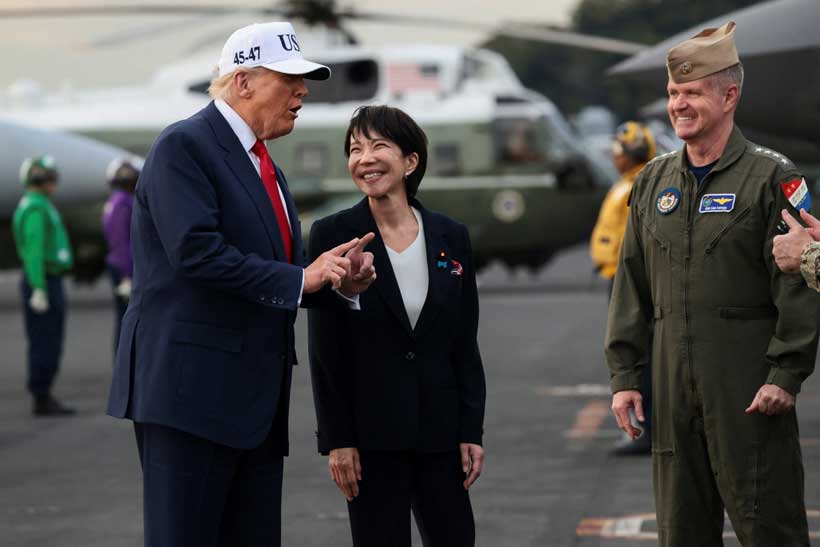According to the Wall Street Journal, Trump phoned Japanese Prime Minister Sanae Takaichi and cautioned her against provoking Beijing over Taiwan’s sovereignty. The call reportedly came right after Xi Jinping spoke with Trump about China’s historic claims to Taiwan and the two powers’ shared responsibility in managing global order. Takaichi had sparked controversy earlier in November by suggesting Japan could respond militarily if China attacked Taiwan, triggering sharp backlash from Beijing.
Why It Matters
The exchange signals Trump’s attempt to stabilize U.S.–China relations at a moment of heightened tension while nudging Japan America’s key regional ally to adopt a lower-profile posture on Taiwan. It also highlights the delicate triangle between Washington, Tokyo, and Beijing, where small shifts in rhetoric can reshape deterrence dynamics in the Indo-Pacific.
Trump is positioning himself as a manager of U.S.–China relations while trying to prevent allied statements from escalating tensions; Takaichi must balance domestic security politics with the sensitivities of China relations; and Beijing is monitoring every public signal from Washington and Tokyo as it frames its claims over Taiwan. Taiwan, meanwhile, remains deeply affected by how major powers calibrate their language and commitments.
What’s Next
Expect renewed scrutiny of Japan’s security messaging as Takaichi weighs how firmly to maintain her earlier stance. Washington may continue quiet coordination with Tokyo to prevent diplomatic flare-ups with China, while Beijing is likely to test the strength and consistency of U.S.–Japan alignment through sharper rhetoric or military signaling around Taiwan.
With information from Reuters.


AloJapan.com